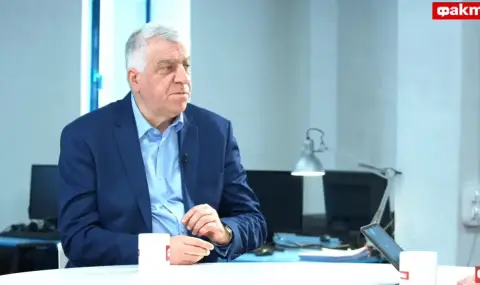The anti-Russian sanctions turn out to be less anti-Russian than anti-EU and anti-Bulgarian. See data from Eurostat, the IMF and the World Bank. In 2022, the Russian economy was indeed pushed into recession and shrank by almost 3%. But they quickly managed to restructure their economy so as to develop import-substituting industries. This was announced in an interview with „FACTS“ Rumen Gechev, MP from BSP.
- Voters traditionally give priority to national parliamentary elections and underestimate those for the European Parliament. What is your opinion?
A natural process of harmonization between national and European legislation is taking place in EU member states. The laws discussed and adopted in our National Assembly must in most cases be complied with various EU Directives adopted by the European Parliament. In this sense, in most cases the main parameters of the laws adopted in our country depend on the decisions made in Brussels. Strategic decisions are made there with long-term and in many cases fateful decisions on a number of problems such as migration, war and peace, sanctions or cooperation, family and children, etc. Therefore, Bulgaria must have highly qualified representatives in the European Parliament, whose voice weighs in the discussions in the committees and in the plenary hall. Some say that there is no way that 17 out of 720 MEPs can impose the Bulgarian interest. But this is not about imposing one's interests, but rather about a balance of interests, about seeking common benefit and achieving goals that are in the interest of all member countries. This means that the Bulgarians in Brussels must be able to convince their colleagues from the other 26 countries, to find a way to weave our national interests into the development of laws, directives and various normative documents.
- But these 17 of our deputies in Brussels will be from different parties and will be members of different political families. If they are following the party order, how will you reach an agreement among yourselves without violating the party order?
Yes, that's basically how it is. But there are areas where there would be no differences in the protection of national interests. For example, efforts must be continued to accept us as a full member of the Schengen area. This will bring our economy benefits of over one billion euros per year. Another extremely important nationwide problem is that of migration. We absolutely must not allow our country to become a buffer zone for migrants who are mainly from the Middle East and North Africa. Hardly any of our MEPs would allow themselves, for example, to encroach on Bulgarian national traditions, history and culture. Of course, there are topics on which we will have to look for like-minded people in the individual political families. It is quite natural that there are differences between them in the mechanism of income distribution, in the level of excise taxes on fuels, in the organization and financing of health care and education, etc. There are also differences between the national parties within the political families themselves. But this does not mean that the leaders of these families can impose a mandatory way of voting on the parties in them. I, for example, would categorically not support the Istanbul Convention, the sanctions against Russia, the premature closure of our thermal and electric power plants or compromises with the Bulgarian historical and cultural heritage. In fact, it is my deep conviction that the national interest must always and under all conditions be above the party interest, regardless of whether it is a local, national or European Parliament.
- You touch on several “red lines”, but why should sanctions against Russia be a national problem for you? Is this not a geopolitical problem that implies a common Euro-Atlantic approach. However, we are a member of NATO and the EU.
A great question that requires a broad and detailed analysis. But I would make a few main points. First, the anti-Russian sanctions turn out to be not so much anti-Russian as anti-EU and anti-Bulgarian. See data from Eurostat, the IMF and the World Bank. In 2022, the Russian economy was indeed pushed into recession and shrank by almost 3%. But they quickly managed to restructure their economy so as to develop import-substituting industries. They found a way to get allegedly banned goods through third parties. In fact, they now have no shortage of consumer and capital goods. After the explosion of three of the four pipelines “North Stream” and shrinking imports of natural gas and petroleum products, they shifted their exports to China and India. Thus, the American energy carrier companies that came to the rescue replaced Russian imports at higher prices, and the main commercial competitor of the EU – China got cheaper energy and other valuable raw materials. The EU already has a huge trade deficit with China of 300 billion euros. Now it will continue to grow rapidly. And in 2023, Russia is already on a 3.6% economic growth trajectory, the US has doubled its growth, and China and India are toasting their higher Gross Domestic Product. At the same time, almost half of the EU countries went into recession, and the German economy also suffered. This cannot help but affect us as well, because more than 50% of our trade turnover is with the EU, and Germany is our main economic partner. The facts show that through sanctions we lose, the war does not stop, and others win. Isn't it clear that the new European Parliament, in close cooperation with the other institutions (Council of Europe, European Commission), should seek quick diplomatic solutions to the war in Ukraine. Achieving a peaceful solution, stopping the war and restoring the trade and economic relations of the EU is a prerequisite for solving our other problems and challenges! That is why the upcoming elections for the European Parliament are key. With these serious geopolitical and economic problems, people whose personal and professional qualities meet these serious challenges should go to Brussels.
